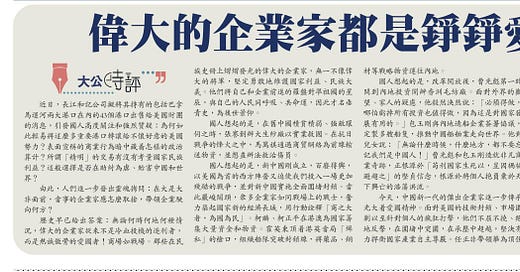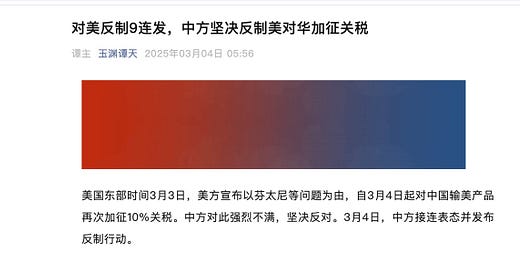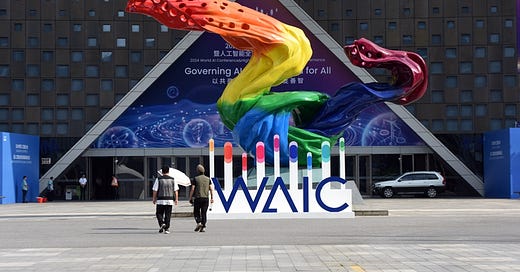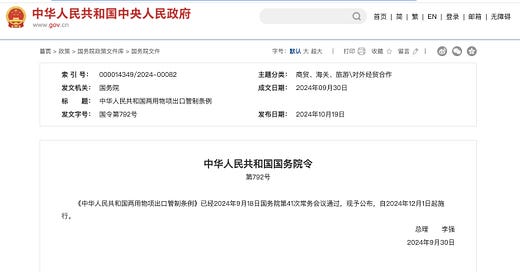
The Chinese government once again criticized CK Hutchison's Panama Port deal: "great entrepreneurs are all steadfast patriots"
Ta Kung Pao, controlled by the Chinese central government and currently under the Central Government's Hong Kong representative office, published another article today criticizing CK Hutchison Holdings for selling 43 ports—including the two major ports at the Panama Canal—to a consortium of American financial firms.
Great entrepreneurs are all steadfast patriots
Recently, news that CK Hutchison Holdings intends to sell 80% of its assets in Hutchison Port Holdings—including 43 ports and associated logistics networks spread across 23 countries, with the two major Panama Canal ports at both ends (Balboa and Cristóbal)—to a consortium led by US firms has sparked intense public attention and strong doubts among the people: Why would such a significant number of critical ports be so easily transferred to malicious American forces? What hidden political schemes lurk behind the ostensible commercial transaction? Does this so-called “shrewd” deal take national and ethnic interests into account? Does such a choice aid the oppressor and harm China and the world?
Consequently, people have further raised a soul-searching question: In the face of matters of great national importance, how should the entrepreneurs involved make their choices, and where should they steer their companies?
History has already provided the answer: No matter when, where, or under what circumstances, great entrepreneurs are never cold-blooded profit-seekers but passionate, principled patriots! The marketplace is like a battlefield. Those great entrepreneurs whose names shine in our national history are all like great generals—steadfastly and courageously defending national interests and the greater cause of the nation. They set the compass of their companies toward the ideals of their motherland, breathing in unison with their people, and sharing the same destiny; this is why they are immortalized in history and revered by future generations.
People recall that in old China, when the nation was impoverished and weak and enemies surrounded it, Zhang Jian founded the Dasheng Spinning Factory to save the country through industry. During the flames of the Anti-Japanese War, Ma Wanqi mobilized the business network to transport supplies to the frontlines and did everything possible to treat the wounded.
People also remember that when the People’s Republic of China was newly established and everything was in ruins, the Western bloc led by the United States forced us into an even more brutal war and imposed a comprehensive blockade on the new China. In that dire moment, many entrepreneurs, like warriors on the battlefield, fought hard to build a new economic wall for the country, demonstrating through their actions that “the highest calling of business is for the nation and its people.” In Hong Kong and Macao, figures such as Ke Lin and Ke Zhengping raised large amounts of funds and materials for the country. Ho Ying Tung, defying the “smuggling” actions of the British Hong Kong authorities, organized a fleet to break through the blockade and transported strategic supplies like medicines and steel to the mainland.
People recall that after the reform and opening up, Cao Guangbiao was the first to invest in and establish the Xiangzhou Woolen Mill on the mainland. Despite external skepticism and familial doubts, he resolutely declared, “It must be done—even if it means losing all the investment, it is worth it because it benefits the nation’s development.” Similarly, Yung Chi Pak signed an agreement with mainland shipbuilding companies, commissioning several vessels and propelling China’s shipbuilding industry onto the world stage. He told his children, “No matter when or where, never forget that we are Chinese!” The extraordinary commercial achievements of Cao Guangbiao and Yung Chi Pak are rooted in the steadfast belief that “if it benefits the country, life and death are secondary; one should not avoid hardships due to fortune or misfortune,” and in channeling personal ambitions into the greater tide of national prosperity.
Today, China’s new generation of outstanding entrepreneurs further carries forward and amplifies the patriotic spirit. In the face of America’s technological blockade, market encirclement, and even frenzied personal attacks, they remain resilient and fight back fiercely—breaking through blockades and transcending under pressure—firmly and vigorously defending the nation’s industrial autonomy and dignity. Ren Zhengfei led Huawei to withstand the shock of global supply chain disruptions, launching the “Nanniwan Plan” amid a desperate shortage of high-end chip supplies, thereby exemplifying what it means to “stand and resist” and safeguarding China’s technological sovereignty in communications, proclaiming to the world that Chinese companies will not kneel before the might of coercion. Many other entrepreneurs have even regarded being listed on the so-called US sanctions list as a badge of honor, transforming external pressure into a strategic opportunity for independent innovation and breakthrough development. BYD, CATL, iFlytek, DJI—each success story underscores the path to greatness and achievement.
“Adversity reveals true heroes.” Both history and reality remind entrepreneurs at the forefront that when facing American hegemonic bullying, only by firmly standing with the nation and fighting bravely can they protect their country, win dignity, and preserve honor. Conversely, if one fails to see through the true nature of those American politicians who demand not only money but lives, and chooses to dance with them or act against their own interests, they might temporarily achieve a “big deal” and earn large profits, but ultimately they will have no future and will be forever condemned by history.
— Ye Jiahao
And according to CCTV, China’s official media, A Delegation of the Department of External Liaison of the CPC Central Committee visited Panama this week.
From March 14 to 15, Ma Hui, Deputy Director of the Department of External Liaison of the CPC Central Committee, led a Chinese Communist Party delegation to visit Panama. During the visit, he met with leaders of Panama’s major political parties and held discussions with think tank scholars and others. Ma Hui stated that the Chinese side is willing to strengthen exchanges with Panamanian political parties and think tanks, deepen mutual understanding and trust, and consolidate the popular foundation for China-Panama friendship. In response, the Panamanian side expressed its willingness to deepen friendly exchanges, build a consensus for cooperation, and promote the sustainable development of China-Panama friendship.














